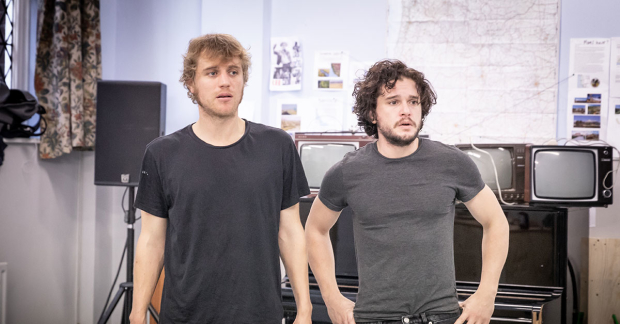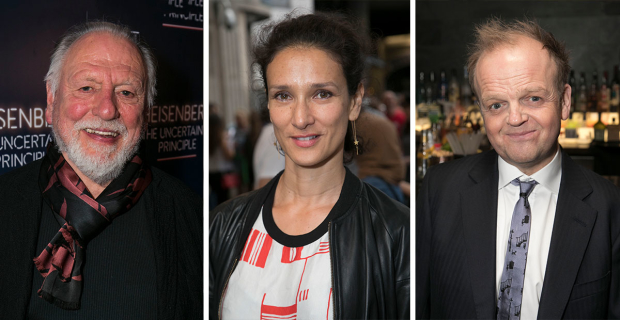Sam Shepard: the playwright remembered
As the Royal Court stages a celebration of the playwright, Michael Coveney reflects on his extraordinary body of work

© Marc Brenner
The Royal Court offered a sneak preview this week of Johnny Flynn and Kit Harington in Sam Shepard's True West which opens, in Matthew Dunster's revival, at the Vaudeville at the end of next week. You probably thought, like me, this was a play we don't really need to see again. And, like me, you were wrong.
Their coruscating scene of fraternal double-cross was part of a celebration of the life and work of Shepard in a theatre he graced many times. As veteran Kenneth Cranham, who appeared in some thirteen plays at the Court between 1966 and 1981, said, that era was distinguished by two Sams in Sloane Square: Beckett and Shepard. Quite apart from the British writers…
Sam Shepard was a poet, and a poet of landscape
Like Beckett, and in his own distinctive fashion, Shepard was a poet, and a poet of landscape, the motel on the edge of the desert, the race-track, family secrets and rock and roll. His great friend Stephen Rea, who co-curated the occasion with director Nancy Meckler and actor Lloyd Hutchinson, said he was the only intellectual who protested the Iraq war in the theatre (in Kicking a Dead Horse).
He was also a cowboy who fetched up in Greenwich Village, went on the road with Bob Dylan, lived on a ranch, wrote and was close to Patti Smith and – our good luck – came to live in London with his first wife, O-Lan, who reminisced movingly on the stage on Monday afternoon, sang a song Sam loved about the Mississippi, and said how their son, Jessie, had been the catalyst in bringing her closer to Sam's second wife, Jessica Lange, and their two children.
He became a beacon for British playwrights
Sam and O-Lan's three year stay in London was a fruitful period of rehab and readjustment – he'd had a critical mauling at the Lincoln Centre in New York – and as well as the plays at the Court, notably Tooth of Crime (1974), Action (1975) and Geography of a Horse Dreamer (1974), there were plays at Hampstead Theatre and visits to Walthamstow dog track. He became such a beacon for British playwrights that Joe Penhall got the Guardian to pay for him to go and interview Shepard when he couldn't finish a play for the National.

© Dan Wooller for WhatsOnStage
Miranda Richardson, Indira Varma, Prasanna Puwanarajah and Kate Fleetwood read some revelatory snippets of prose and poetry; he was a genuinely funny writer, a hilarious litany of percussive phenomena in "Rhythm – in natural life, windscreen wipers, bird sounds, fire alarms, made Ginger Baker and Keith Moon look like "punk chumps." Puwanarajah and Jason Watkins performed a lost scene from his movie with Wim Wenders, Paris Texas (1984), and in Buried Child (1978), Rea and Marty Cruickshank repeated a searing scene they played back then but were now authentically old enough to inhabit
Hutchinson and Judith Roddy played an extract from Shepard's last play, commissioned by Rea for the Derry City of Culture in 2013. Shepard had asked Rea did he want the piece written to a theme, or just "balls out". "Oh, I think 'balls out'" said Rea. And it was. Ronke Adekoluejo sent us away with a haiku of Shepard's floating, elusive identity. A photographic portrait of this stunningly handsome and talented artist descended over the stage: "A Renaissance prince with a coyote howling in the distance".

















